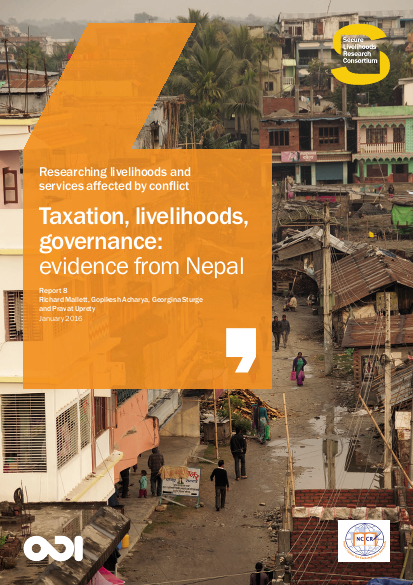
Tax has become an important part of the global agenda around poverty reduction: well-functioning domestic tax systems are now championed as a means towards sustained economic growth and national self-sufficiency. But most of the policy discussion surrounds system design and implementation while the local experience of taxation – as it actually works for people on an everyday basis – is taken for granted. For this report, the authors surveyed more than 1,000 households across two Nepalese districts, asking people about their livelihoods, experiences with taxation, and relationships with government. The results show that most households pay a marginal amount of tax, particularly in terms of formal taxes to government. But while taxes may be low, qualitative research suggests people continue to pay in other ways. In the absence of an enabling environment – public health clinics that deliver, a steady supply of electricity, government responsiveness to local needs – the costs of development and public goods provision are essentially being passed down the chain to communities and individuals. The central argument of the report is that ultimately it is not the number of taxes or the amount paid that matters, but the terms of the bargain. With a new Constitution freshly inked, the space for the Nepal government to reform these terms has expanded.
